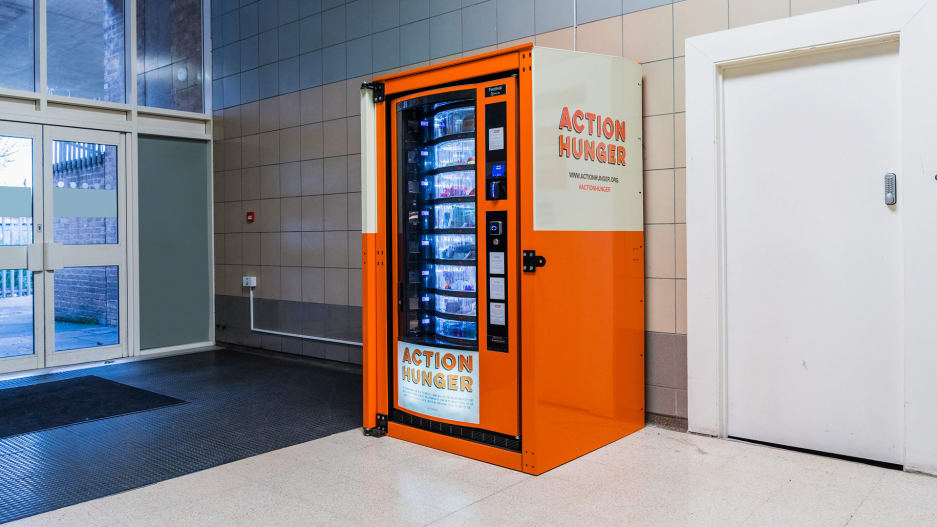
At first sight, Action Hunger’s bright orange and white vending machine at the entrance of the Sussex Street subway in Nottingham, UK, appears like any other. However, look closer, and you will realize that the wide range of products inside have no price. That’s because the goods are not to satiate commuter cravings but to provide the area’s homeless with free and easy access to essentials like socks, toothbrushes, fresh fruit, energy bars, and water.
Huzaifah Khaled, the nonprofit’s founder, came up with the idea after talking to the many homeless people he befriended during his daily train commute from Nottingham to Cambridge University, where he was pursuing his doctoral degree. “I always stopped to talk, often with a coffee or meal in hand,” he says. “I developed an acute understanding of their needs, and learned that even access to necessities like food and water was sporadic and oftentimes cumbersome . . . I realized that there had to be a more effective way of at least ensuring the bare necessities were always available.”

To access the goods, the person first has to obtain an electronic card from The Friary, a day center for the homeless that has been in operation for over 30 years. To ensure everyone gets a fair share, each cardholder is allowed only three items of their choice a day. To continue receiving the benefit, he/she has to check in with a predetermined partner organization every week. Failure to do so invalidates the electronic card. While that may sound harsh, Khaled says, “The idea is that users don’t become dependent on the machines, and are working towards a long-term plan for getting off the streets.”
The machine is restocked daily by volunteers, who also keep track of the most popular items. Fifty percent of the food is donated by FairShare, a charity which distributes supermarket surplus, while the rest is obtained from local restaurants. The requests for non-food items are fulfilled with donations received from organizations and individuals. A partnership with delivery service UberEats, ensures that the items that need to be replenished are delivered to the vending machine’s location on a timely basis.

Though it has only been a few months since the machine was installed in December 2017, the early data and feedback on this unusual strategy to help the needy have been extremely encouraging. Khaled next plans to roll out the machines to other locations within the UK, as well as four US cities — New York, San Francisco, Seattle, and Los Angeles!
Resources: Fastcompany.com, actionhunger.org, wbur.org
